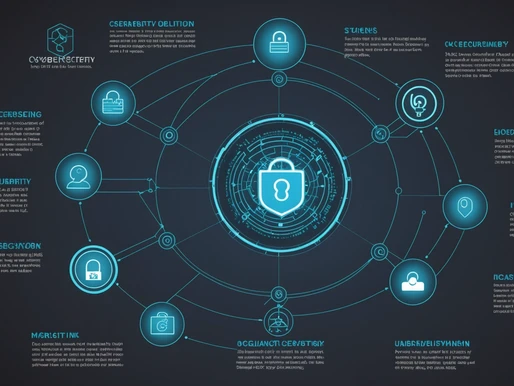Unleashing Untapped Potential: Mastering Cybersecurity Skills for Tomorrow’s Tech Careers
As technology evolves rapidly, the need for skilled cybersecurity professionals is more pressing than ever. Digital threats are increasing, and organizations recognize the importance of having experts who can safeguard their sensitive information. This blog post uncovers how mastering cybersecurity can open doors to future tech careers, giving individuals the expertise they need to succeed in this ever-changing environment.
Cybersecurity encompasses the practices and technologies used to protect networks, devices, and data from unauthorized access and cyber threats. As companies transition to digital platforms, the necessity for robust cybersecurity measures has become clear. Professionals in this field are crucial for identifying vulnerabilities and implementing effective security solutions.
The Growing Cybersecurity Landscape
The global cybersecurity market is projected to reach $345.4 billion by 2026, driven by increasing cyber threats and the heightened reliance on digital infrastructures. Cybersecurity is not just an IT issue; it’s a concern that spans all sectors, impacting every organization.
With more people working remotely and using cloud computing, the need for professionals with diverse cybersecurity skills is critical. Organizations require experts who can combat a range of threats, whether simple phishing attacks or complex state-sponsored cyber operations. For example, in 2022, 75% of organizations reported an increase in cyberattacks, highlighting the urgent need for skilled professionals.
Essential Cybersecurity Skills to Acquire
Aspiring cybersecurity professionals should develop a strong set of skills to excel in their careers. Here are key skills to focus on:
1. Threat Assessment and Risk Management
Understanding how to evaluate threats is foundational for cybersecurity experts. Professionals should identify potential weaknesses in systems and assess their potential impact.
For instance, using risk management frameworks like NIST can help structure vulnerability assessments. Regular audits can refine security protocols, decreasing the likelihood of breaches by up to 50%.
Pro Tip: Familiarize yourself with tools like OWASP Risk Rating Methodology, which provides a systematic approach to evaluate risks effectively.
2. Networking and System Administration
A solid understanding of networking concepts is essential in cybersecurity. Professionals should grasp how network protocols work, including TCP/IP and firewall configurations.
Knowledge of system administration enables cybersecurity experts to manage user accounts and settings across various platforms. This expertise allows for quicker detection and response to security issues.
3. Cybersecurity Tools and Technologies
Mastering cybersecurity tools is crucial for success. Professionals should be proficient in systems like Intrusion Detection Systems (IDS) and Security Information and Event Management (SIEM). These tools are key to identifying and mitigating security threats.
Additionally, learning about penetration testing software, such as Metasploit, can help teams proactively uncover vulnerabilities. Companies that implement regular penetration tests can reduce their risk of breaches by 30% or more.
The Importance of Continuous Learning
As technology evolves, continuous learning is essential in cybersecurity. Professionals must keep current with emerging threats and best practices.
Numerous platforms offer valuable resources, from certification programs like CompTIA Security+ to advanced sessions for experienced practitioners. Staying updated can significantly enhance employability and salary potential, with certified professionals earning up to 20% more than their non-certified counterparts.
Soft Skills: The Unsung Heroes of Cybersecurity
Technical skills are essential, but soft skills are often the game-changer in cybersecurity careers. Effective communication, problem-solving, and analytical thinking are vital traits that professionals should develop.
Cybersecurity experts frequently work with various departments, translating technical details for non-technical staff. This ability to communicate clearly makes a significant difference in team efficiency and collaboration.
Expert Insight: Join local cybersecurity groups or attend meetups to practice these skills in real-world scenarios and expand your professional network.
The Role of Certifications and Advanced Degrees
Certifications can solidify a candidate’s expertise in cybersecurity. They demonstrate to potential employers that an individual has the current knowledge and skills needed in this competitive job market.
Prominent certifications include Certified Ethical Hacker (CEH), Certified Information Security Manager (CISM), and Certified Information Systems Auditor (CISA). Advanced degrees in cybersecurity or related disciplines can give candidates a competitive edge, reflecting dedication to the field.
Career Paths in Cybersecurity
The career options in cybersecurity are varied and can align with different interests. Here are some of the most popular roles:
1. Security Analyst
Security analysts are frontline defenders against cyber threats. They monitor network traffic, investigate breaches, and take proactive measures to prevent data loss. This role is vital for maintaining an organization’s security posture.
2. Penetration Tester
Often called “ethical hackers,” penetration testers simulate cyberattacks to identify vulnerabilities within an organization’s systems. Their work is essential for preventing real attacks by pinpointing weaknesses.
3. Chief Information Security Officer (CISO)
CISOs are responsible for developing and overseeing an organization’s security strategy. They lead security teams, manage budgets, and develop policies to ensure comprehensive protection. This role demands a mix of technical and managerial skills to navigate the complexities of cybersecurity.
Final Thoughts
Mastering cybersecurity skills is crucial for those looking to thrive in tech careers as the digital landscape constantly changes. With the importance of cybersecurity rising, the right skills will position you to tackle future challenges effectively.
By focusing on critical skills like threat assessment, networking, and cybersecurity tools, as well as nurturing soft skills, professionals can unlock their full potential. The demand for knowledgeable and proactive individuals in the cybersecurity field is growing, making now the perfect time to invest in your education and training.
Investing in your cybersecurity skills today can lead to rewarding career opportunities and contribute to a safer digital world for everyone.

